-
EXECUTIVE SUMMARY
-
MARKET INTRODUCTION
-
Definition
-
Scope of the Study
- Research Objective
- Assumptions
- Limitations
-
RESEARCH METHODOLOGY
-
Overview
-
Data Mining
-
Secondary Research
-
Primary Research
- Primary Interviews and Information Gathering Process
- Breakdown of Primary Respondents
-
Forecasting Model
-
Market Size Estimation
- Bottom-Up Approach
- Top-Down Approach
-
Data Triangulation
-
Validation
-
MARKET DYNAMICS
-
Overview
-
Drivers
-
Restraints
-
Opportunities
-
MARKET FACTOR ANALYSIS
-
Value Chain Analysis
-
Porter’s Five Forces Analysis
- Bargaining Power of Suppliers
- Bargaining Power of Buyers
- Threat of New Entrants
- Threat of Substitutes
- Intensity of Rivalry
-
COVID-19 Impact Analysis
- Market Impact Analysis
- Regional Impact
- Opportunity and Threat Analysis
-
GLOBAL HYDROGEN ELECTROLYZERS MARKET, BY PRODUCT TYPE
-
Overview
-
Proton Exchange Membrane Electrolyzer
-
Alkaline Electrolyzer
-
Solid Oxide Electrolyzer
-
GLOBAL HYDROGEN ELECTROLYZERS MARKET, BY CAPACITY
-
Overview
-
Low ( 1mW)
-
GLOBAL HYDROGEN ELECTROLYZERS MARKET, BY OUTLET PRESSURE
-
Overview
-
Low ( 40 Bar)
-
GLOBAL HYDROGEN ELECTROLYZERS MARKET, BY END-USER
-
Overview
-
Ammonia
-
Methanol
-
Refining/ Hydrocarbon
-
Electronics
-
Energy
-
Power to Gas
-
Transport
-
Metal Production and Fabrication
-
Pharma and Biotech
-
Food and Beverages
-
Glass Industry
-
Others
-
GLOBAL HYDROGEN ELECTROLYZERS MARKET, BY REGION
-
Overview
-
North America
- US
- Canada
-
Europe
- Germany
- France
- UK
- Italy
- Spain
- Rest of Europe
-
Asia-Pacific
- China
- India
- Japan
- South Korea
- Australia
- Rest of Asia-Pacific
-
Rest of the World
- Middle East
- Africa
- Latin America
-
COMPETITIVE LANDSCAPE
-
Overview
-
Competitive Analysis
-
Market Share Analysis
-
Major Growth Strategy in the Global Hydrogen Electrolyzers Market,
-
Competitive Benchmarking
-
Leading Players in Terms of Number of Developments in the Global Hydrogen Electrolyzers Market,
-
Key developments and Growth Strategies
- New Product Launch/Service Deployment
- Merger &Acquisitions
- Joint Ventures
-
Major Players Financial Matrix
- Sales & Operating Income, 2023
- Major Players R&D Expenditure.2023
-
COMPANY PROFILES
-
Nel Hydrogen
- Company Overview
- Financial Overview
- Products Offered
- Key Developments
- SWOT Analysis
- Key Strategies
-
Siemens AG
- Company Overview
- Financial Overview
- Products Offered
- Key Developments
- SWOT Analysis
- Key Strategies
-
McPhy Energy
- Company Overview
- Financial Overview
- Products Offered
- Key Developments
- SWOT Analysis
- Key Strategies
-
ITM Power Plc
- Company Overview
- Financial Overview
- Products Offered
- Key Developments
- SWOT Analysis
- Key Strategies
-
Tianjin Mainland Hydrogen Equipment Co. Ltd
- Company Overview
- Financial Overview
- Products Offered
- Key Developments
- SWOT Analysis
- Key Strategies
-
Gaztransport & Technigaz
- Company Overview
- Financial Overview
- Products Offered
- Key Developments
- SWOT Analysis
- Key Strategies
-
Giner Inc.
- Company Overview
- Financial Overview
- Products Offered
- Key Developments
- SWOT Analysis
- Key Strategies
-
GreenHydrogen Systems
- Company Overview
- Financial Overview
- Products Offered
- Key Developments
- SWOT Analysis
- Key Strategies
-
iGas Energy GmbH
- Company Overview
- Financial Overview
- Products Offered
- Key Developments
- SWOT Analysis
- Key Strategies
-
Beijing CEI Technology Co., Ltd.
- Company Overview
- Financial Overview
- Products Offered
- Key Developments
- SWOT Analysis
- Key Strategies
-
Next Hydrogen
- Company Overview
- Financial Overview
- Products Offered
- Key Developments
- SWOT Analysis
- Key Strategies
-
Air Liquide
- Company Overview
- Financial Overview
- Products Offered
- Key Developments
- SWOT Analysis
- Key Strategies
-
APPENDIX
-
References
-
Related Reports
-
-
LIST OF TABLES
-
GLOBAL HYDROGEN ELECTROLYZERS MARKET, SYNOPSIS, 2019-2032
-
GLOBAL HYDROGEN ELECTROLYZERS MARKET, ESTIMATES & FORECAST, 2019-2032(USD BILLION)
-
GLOBAL HYDROGEN ELECTROLYZERS MARKET, BY PRODUCT TYPE, 2019-2032 (USD BILLION)
-
GLOBAL HYDROGEN ELECTROLYZERS MARKET, BY CAPACITY, 2019-2032 (USD BILLION)
-
GLOBAL HYDROGEN ELECTROLYZERS MARKET, BY OUTLET PRESSURE, 2019-2032 (USD BILLION)
-
GLOBAL HYDROGEN ELECTROLYZERS MARKET, BY END-USER, 2019-2032 (USD BILLION)
-
NORTH AMERICA: HYDROGEN ELECTROLYZERS MARKET, BY PRODUCT TYPE, 2019-2032 (USD BILLION)
-
NORTH AMERICA: HYDROGEN ELECTROLYZERS MARKET, BY CAPACITY, 2019-2032 (USD BILLION)
-
NORTH AMERICA: HYDROGEN ELECTROLYZERS MARKET, BY OUTLET PRESSURE, 2019-2032 (USD BILLION)
-
NORTH AMERICA: HYDROGEN ELECTROLYZERS MARKET, BY END-USER, 2019-2032 (USD BILLION)
-
US: HYDROGEN ELECTROLYZERS MARKET, BY PRODUCT TYPE, 2019-2032 (USD BILLION)
-
US: HYDROGEN ELECTROLYZERS MARKET, BY CAPACITY, 2019-2032 (USD BILLION)
-
US: HYDROGEN ELECTROLYZERS MARKET, BY OUTLET PRESSURE, 2019-2032 (USD BILLION)
-
US: HYDROGEN ELECTROLYZERS MARKET, BY END-USER, 2019-2032 (USD BILLION)
-
CANADA: HYDROGEN ELECTROLYZERS MARKET, BY PRODUCT TYPE, 2019-2032 (USD BILLION)
-
CANADA: HYDROGEN ELECTROLYZERS MARKET, BY CAPACITY, 2019-2032 (USD BILLION)
-
CANADA: HYDROGEN ELECTROLYZERS MARKET, BY OUTLET PRESSURE, 2019-2032 (USD BILLION)
-
CANADA: HYDROGEN ELECTROLYZERS MARKET, BY END-USER, 2019-2032 (USD BILLION)
-
EUROPE: HYDROGEN ELECTROLYZERS MARKET, BY PRODUCT TYPE, 2019-2032 (USD BILLION)
-
EUROPE: HYDROGEN ELECTROLYZERS MARKET, BY CAPACITY, 2019-2032 (USD BILLION)
-
EUROPE: HYDROGEN ELECTROLYZERS MARKET, BY OUTLET PRESSURE, 2019-2032 (USD BILLION)
-
EUROPE: HYDROGEN ELECTROLYZERS MARKET, BY END-USER, 2019-2032 (USD BILLION)
-
GERMANY: HYDROGEN ELECTROLYZERS MARKET, BY PRODUCT TYPE, 2019-2032 (USD BILLION)
-
GERMANY: HYDROGEN ELECTROLYZERS MARKET, BY CAPACITY, 2019-2032 (USD BILLION)
-
GERMANY: HYDROGEN ELECTROLYZERS MARKET, BY OUTLET PRESSURE, 2019-2032 (USD BILLION)
-
GERMANY: HYDROGEN ELECTROLYZERS MARKET, BY END-USER, 2019-2032 (USD BILLION)
-
FRANCE: HYDROGEN ELECTROLYZERS MARKET, BY PRODUCT TYPE, 2019-2032 (USD BILLION)
-
FRANCE: HYDROGEN ELECTROLYZERS MARKET, BY CAPACITY, 2019-2032 (USD BILLION)
-
FRANCE: HYDROGEN ELECTROLYZERS MARKET, BY OUTLET PRESSURE, 2019-2032 (USD BILLION)
-
FRANCE: HYDROGEN ELECTROLYZERS MARKET, BY END-USER, 2019-2032 (USD BILLION)
-
ITALY: HYDROGEN ELECTROLYZERS MARKET, BY PRODUCT TYPE, 2019-2032 (USD BILLION)
-
ITALY: HYDROGEN ELECTROLYZERS MARKET, BY CAPACITY, 2019-2032 (USD BILLION)
-
ITALY: HYDROGEN ELECTROLYZERS MARKET, BY OUTLET PRESSURE, 2019-2032 (USD BILLION)
-
ITALY: HYDROGEN ELECTROLYZERS MARKET, BY END-USER, 2019-2032 (USD BILLION)
-
SPAIN: HYDROGEN ELECTROLYZERS MARKET, BY PRODUCT TYPE, 2019-2032 (USD BILLION)
-
SPAIN: HYDROGEN ELECTROLYZERS MARKET, BY CAPACITY, 2019-2032 (USD BILLION)
-
SPAIN: HYDROGEN ELECTROLYZERS MARKET, BY OUTLET PRESSURE, 2019-2032 (USD BILLION)
-
SPAIN: HYDROGEN ELECTROLYZERS MARKET, BY END-USER, 2019-2032 (USD BILLION)
-
UK: HYDROGEN ELECTROLYZERS MARKET, BY PRODUCT TYPE, 2019-2032 (USD BILLION)
-
UK: HYDROGEN ELECTROLYZERS MARKET, BY CAPACITY, 2019-2032 (USD BILLION)
-
UK: HYDROGEN ELECTROLYZERS MARKET, BY OUTLET PRESSURE, 2019-2032 (USD BILLION)
-
UK: HYDROGEN ELECTROLYZERS MARKET, BY END-USER, 2019-2032 (USD BILLION)
-
REST OF EUROPE: HYDROGEN ELECTROLYZERS MARKET, BY PRODUCT TYPE, 2019-2032 (USD BILLION)
-
REST OF EUROPE: HYDROGEN ELECTROLYZERS MARKET, BY CAPACITY, 2019-2032 (USD BILLION)
-
REST OF EUROPE: HYDROGEN ELECTROLYZERS MARKET, BY OUTLET PRESSURE, 2019-2032 (USD BILLION)
-
REST OF EUROPE: HYDROGEN ELECTROLYZERS MARKET, BY END-USER, 2019-2032 (USD BILLION)
-
ASIA-PACIFIC: HYDROGEN ELECTROLYZERS MARKET, BY PRODUCT TYPE, 2019-2032 (USD BILLION)
-
ASIA-PACIFIC: HYDROGEN ELECTROLYZERS MARKET, BY CAPACITY, 2019-2032 (USD BILLION)
-
ASIA-PACIFIC: HYDROGEN ELECTROLYZERS MARKET, BY OUTLET PRESSURE, 2019-2032 (USD BILLION)
-
ASIA-PACIFIC: HYDROGEN ELECTROLYZERS MARKET, BY END-USER, 2019-2032 (USD BILLION)
-
JAPAN: HYDROGEN ELECTROLYZERS MARKET, BY PRODUCT TYPE, 2019-2032 (USD BILLION)
-
JAPAN: HYDROGEN ELECTROLYZERS MARKET, BY CAPACITY, 2019-2032 (USD BILLION)
-
JAPAN: HYDROGEN ELECTROLYZERS MARKET, BY OUTLET PRESSURE, 2019-2032 (USD BILLION)
-
JAPAN: HYDROGEN ELECTROLYZERS MARKET, BY END-USER, 2019-2032 (USD BILLION)
-
CHINA: HYDROGEN ELECTROLYZERS MARKET, BY PRODUCT TYPE, 2019-2032 (USD BILLION)
-
CHINA: HYDROGEN ELECTROLYZERS MARKET, BY CAPACITY, 2019-2032 (USD BILLION)
-
CHINA: HYDROGEN ELECTROLYZERS MARKET, BY OUTLET PRESSURE, 2019-2032 (USD BILLION)
-
CHINA: HYDROGEN ELECTROLYZERS MARKET, BY END-USER, 2019-2032 (USD BILLION)
-
INDIA: HYDROGEN ELECTROLYZERS MARKET, BY PRODUCT TYPE, 2019-2032 (USD BILLION)
-
INDIA: HYDROGEN ELECTROLYZERS MARKET, BY CAPACITY, 2019-2032 (USD BILLION)
-
INDIA: HYDROGEN ELECTROLYZERS MARKET, BY OUTLET PRESSURE, 2019-2032 (USD BILLION)
-
INDIA: HYDROGEN ELECTROLYZERS MARKET, BY END-USER, 2019-2032 (USD BILLION)
-
AUSTRALIA: HYDROGEN ELECTROLYZERS MARKET, BY PRODUCT TYPE, 2019-2032 (USD BILLION)
-
AUSTRALIA: HYDROGEN ELECTROLYZERS MARKET, BY CAPACITY, 2019-2032 (USD BILLION)
-
AUSTRALIA: HYDROGEN ELECTROLYZERS MARKET, BY OUTLET PRESSURE, 2019-2032 (USD BILLION)
-
AUSTRALIA: HYDROGEN ELECTROLYZERS MARKET, BY END-USER, 2019-2032 (USD BILLION)
-
SOUTH KOREA: HYDROGEN ELECTROLYZERS MARKET, BY PRODUCT TYPE, 2019-2032 (USD BILLION)
-
SOUTH KOREA: HYDROGEN ELECTROLYZERS MARKET, BY CAPACITY, 2019-2032 (USD BILLION)
-
SOUTH KOREA: HYDROGEN ELECTROLYZERS MARKET, BY OUTLET PRESSURE, 2019-2032 (USD BILLION)
-
SOUTH KOREA: HYDROGEN ELECTROLYZERS MARKET, BY END-USER, 2019-2032 (USD BILLION)
-
REST OF ASIA-PACIFIC: HYDROGEN ELECTROLYZERS MARKET, BY PRODUCT TYPE, 2019-2032 (USD BILLION)
-
REST OF ASIA-PACIFIC: HYDROGEN ELECTROLYZERS MARKET, BY CAPACITY, 2019-2032 (USD BILLION)
-
REST OF ASIA-PACIFIC: HYDROGEN ELECTROLYZERS MARKET, BY OUTLET PRESSURE, 2019-2032 (USD BILLION)
-
REST OF ASIA-PACIFIC: HYDROGEN ELECTROLYZERS MARKET, BY END-USER, 2019-2032 (USD BILLION)
-
REST OF THE WORLD: HYDROGEN ELECTROLYZERS MARKET, BY PRODUCT TYPE, 2019-2032 (USD BILLION)
-
REST OF THE WORLD: HYDROGEN ELECTROLYZERS MARKET, BY CAPACITY, 2019-2032 (USD BILLION)
-
REST OF THE WORLD: HYDROGEN ELECTROLYZERS MARKET, BY OUTLET PRESSURE, 2019-2032 (USD BILLION)
-
REST OF THE WORLD: HYDROGEN ELECTROLYZERS MARKET, BY END-USER, 2019-2032 (USD BILLION)
-
MIDDLE EAST: HYDROGEN ELECTROLYZERS MARKET, BY PRODUCT TYPE, 2019-2032 (USD BILLION)
-
MIDDLE EAST: HYDROGEN ELECTROLYZERS MARKET, BY CAPACITY, 2019-2032 (USD BILLION)
-
MIDDLE EAST: HYDROGEN ELECTROLYZERS MARKET, BY OUTLET PRESSURE, 2019-2032 (USD BILLION)
-
MIDDLE EAST: HYDROGEN ELECTROLYZERS MARKET, BY END-USER, 2019-2032 (USD BILLION)
-
AFRICA: HYDROGEN ELECTROLYZERS MARKET, BY PRODUCT TYPE, 2019-2032 (USD BILLION)
-
AFRICA: HYDROGEN ELECTROLYZERS MARKET, BY CAPACITY, 2019-2032 (USD BILLION)
-
AFRICA: HYDROGEN ELECTROLYZERS MARKET, BY OUTLET PRESSURE, 2019-2032 (USD BILLION)
-
AFRICA: HYDROGEN ELECTROLYZERS MARKET, BY END-USER, 2019-2032 (USD BILLION)
-
LATIN AMERICA: HYDROGEN ELECTROLYZERS MARKET, BY PRODUCT TYPE, 2019-2032 (USD BILLION)
-
LATIN AMERICA: HYDROGEN ELECTROLYZERS MARKET, BY CAPACITY, 2019-2032 (USD BILLION)
-
LATIN AMERICA: HYDROGEN ELECTROLYZERS MARKET, BY OUTLET PRESSURE, 2019-2032 (USD BILLION)
-
LATIN AMERICA: HYDROGEN ELECTROLYZERS MARKET, BY END-USER, 2019-2032 (USD BILLION)
-
LIST OF FIGURES
-
RESEARCH PROCESS
-
MARKET STRUCTURE FOR THE GLOBAL HYDROGEN ELECTROLYZERS MARKET
-
MARKET DYNAMICS FOR THE GLOBAL HYDROGEN ELECTROLYZERS MARKET
-
GLOBAL HYDROGEN ELECTROLYZERS MARKET, SHARE (%), BY PRODUCT TYPE, 2023
-
GLOBAL HYDROGEN ELECTROLYZERS MARKET, SHARE (%), BY CAPACITY, 2023
-
GLOBAL HYDROGEN ELECTROLYZERS MARKET, SHARE (%), BY OUTLET PRESSURE, 2023
-
GLOBAL HYDROGEN ELECTROLYZERS MARKET, SHARE (%), BY END-USER, 2023
-
GLOBAL HYDROGEN ELECTROLYZERS MARKET, SHARE (%), BY REGION, 2023
-
NORTH AMERICA: HYDROGEN ELECTROLYZERS MARKET, SHARE (%), BY REGION, 2023
-
EUROPE: HYDROGEN ELECTROLYZERS MARKET, SHARE (%), BY REGION, 2023
-
ASIA-PACIFIC: HYDROGEN ELECTROLYZERS MARKET, SHARE (%), BY REGION, 2023
-
REST OF THE WORLD: HYDROGEN ELECTROLYZERS MARKET, SHARE (%), BY REGION, 2023
-
GLOBAL HYDROGEN ELECTROLYZERS MARKET: COMPANY SHARE ANALYSIS, 2023 (%)
-
NEL HYDROGEN: FINANCIAL OVERVIEW SNAPSHOT
-
NEL HYDROGEN: SWOT ANALYSIS
-
SIEMENS AG: FINANCIAL OVERVIEW SNAPSHOT
-
SIEMENS AG: SWOT ANALYSIS
-
MCPHY ENERGY: FINANCIAL OVERVIEW SNAPSHOT
-
MCPHY ENERGY: SWOT ANALYSIS
-
ITM POWER PLC: FINANCIAL OVERVIEW SNAPSHOT
-
ITM POWER PLC: SWOT ANALYSIS
-
TIANJIN MAINLAND HYDROGEN EQUIPMENT CO. LTD..: FINANCIAL OVERVIEW SNAPSHOT
-
TIANJIN MAINLAND HYDROGEN EQUIPMENT CO. LTD..: SWOT ANALYSIS
-
GAZTRANSPORT & TECHNIGAZ.: FINANCIAL OVERVIEW SNAPSHOT
-
GAZTRANSPORT & TECHNIGAZ.: SWOT ANALYSIS
-
GINER INC.: FINANCIAL OVERVIEW SNAPSHOT
-
GINER INC.: SWOT ANALYSIS
-
GREENHYDROGEN SYSTEMS., : FINANCIAL OVERVIEW SNAPSHOT
-
GREENHYDROGEN SYSTEMS., : SWOT ANALYSIS
-
IGAS ENERGY GMBH: FINANCIAL OVERVIEW SNAPSHOT
-
IGAS ENERGY GMBH: SWOT ANALYSIS
-
BEIJING CEI TECHNOLOGY CO., LTD..: FINANCIAL OVERVIEW SNAPSHOT
-
BEIJING CEI TECHNOLOGY CO., LTD..: SWOT ANALYSIS
-
NEXT HYDROGEN: FINANCIAL OVERVIEW SNAPSHOT
-
NEXT HYDROGEN: SWOT ANALYSIS
-
AIR LIQUIDE: FINANCIAL OVERVIEW SNAPSHOT
-
AIR LIQUIDE: SWOT ANALYSIS
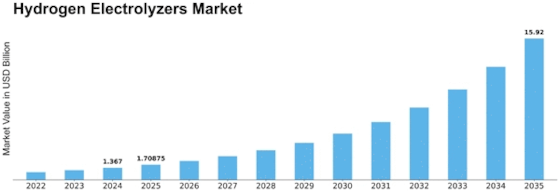


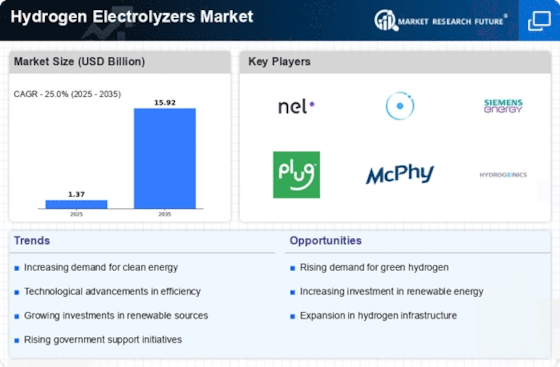
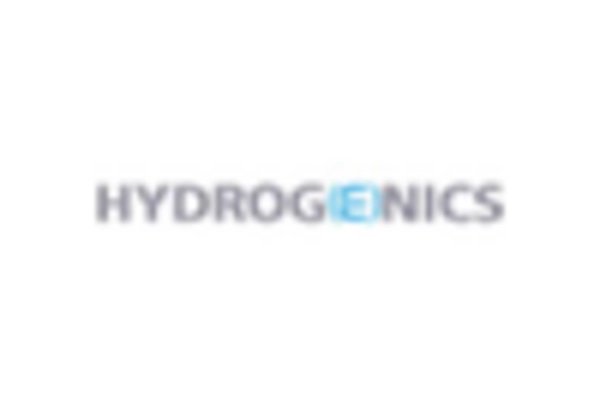

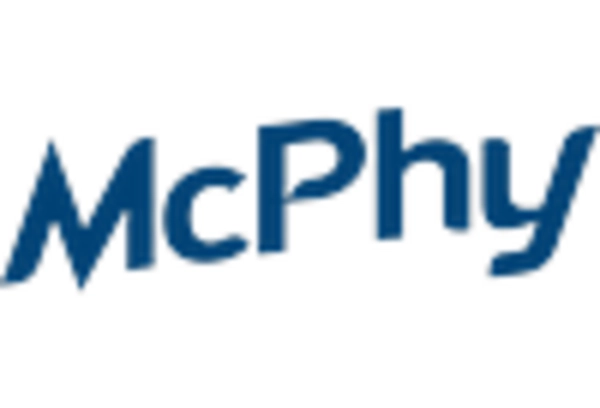
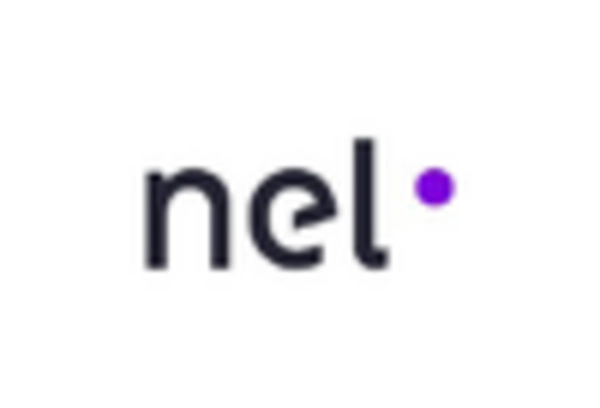
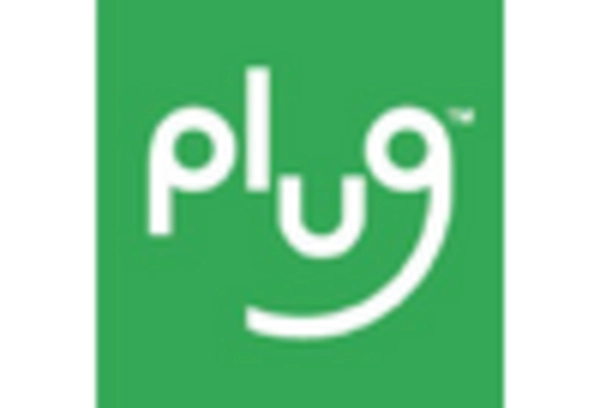
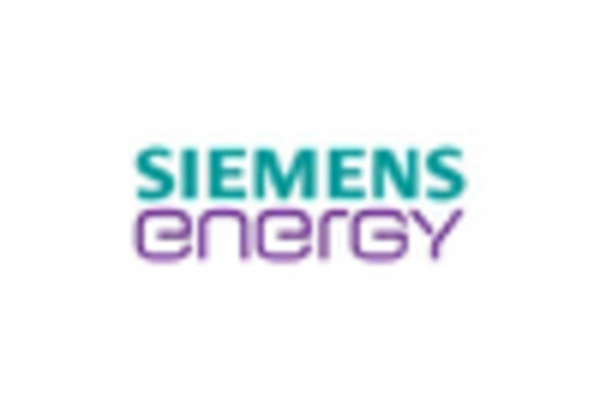









Leave a Comment